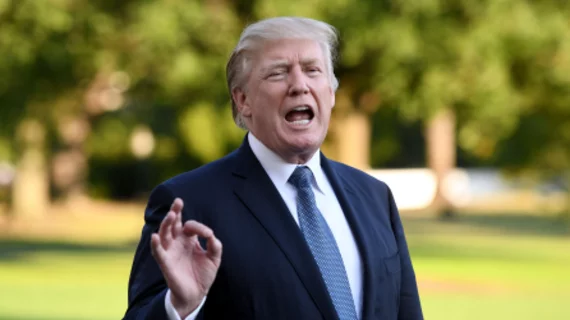Trump to keep out immigrants without healthcare coverage
President Trump wants to keep immigrants from entering the U.S. if they don’t have healthcare insurance coverage. Signing a proclamation on Oct. 4, Trump suspended and limited entry of immigrants who will put a financial burden on the U.S. healthcare system unless they are covered by approved health insurance.
According to Trump, immigrants have cost the U.S. $35 billion in unreimbursed services for care each year for the past 10 years.
The move is in line with the administration’s attempts to limit immigration. The administration also has attempted to prohibit green cards to those who may utilize Medicaid or other public assistance. The proclamation is set to go into effect Nov. 3, 2019.
“Data show that lawful immigrants are about three times more likely than United States citizens to lack health insurance,” Trump wrote in the proclamation. “Immigrants who enter this country should not further saddle our healthcare system, and subsequently American taxpayers, with higher costs.”
According to the proclamation, approved health insurance coverage includes:
- An employer-sponsored plan
- An unsubsidized health plan from the individual market in the U.S.
- A short-term limited duration health plan effective for at least 364 days
- A catastrophic plan
- A visitor health insurance plan with coverage for at least 364 days
- A family member’s plan
- Medicare, TRICARE or another plan with adequate coverage as determined by HHS
The proclamation specifically excluded Medicaid coverage for those 18 and older. The proclamation does not apply to those seeking to enter the U.S. through a special immigration visa; those holding a valid immigrant visa issued before the effective date of the proclamation; those who are a national of Afghanistan or Iraq; a child of a U.S. citizen seeking to enter the U.S.; those pursuing an IR-5 visa or SB-1 visa; an alien under the age of 18; and those aliens whose entry is of national interest to the State Department or would further law enforcement objectives. It also does not affect eligibility for asylum or refugee status.
“We must continue that tradition while also addressing the challenges facing our healthcare system, including protecting both it and the American taxpayer from the burdens of uncompensated care,” Trump wrote. “Continuing to allow entry into the United States of certain immigrants who lack health insurance or the demonstrated ability to pay for their healthcare would be detrimental to these interests.”

